David Gange on Máiréad Robinson
The landscape writer and historian David Gange reflects on meeting Mairéad Robinson in Roundstone. This piece, part of a longer post on 29 March, appeared before Máiréad’s husband, Tim Robinson, passed away on April 3rd.
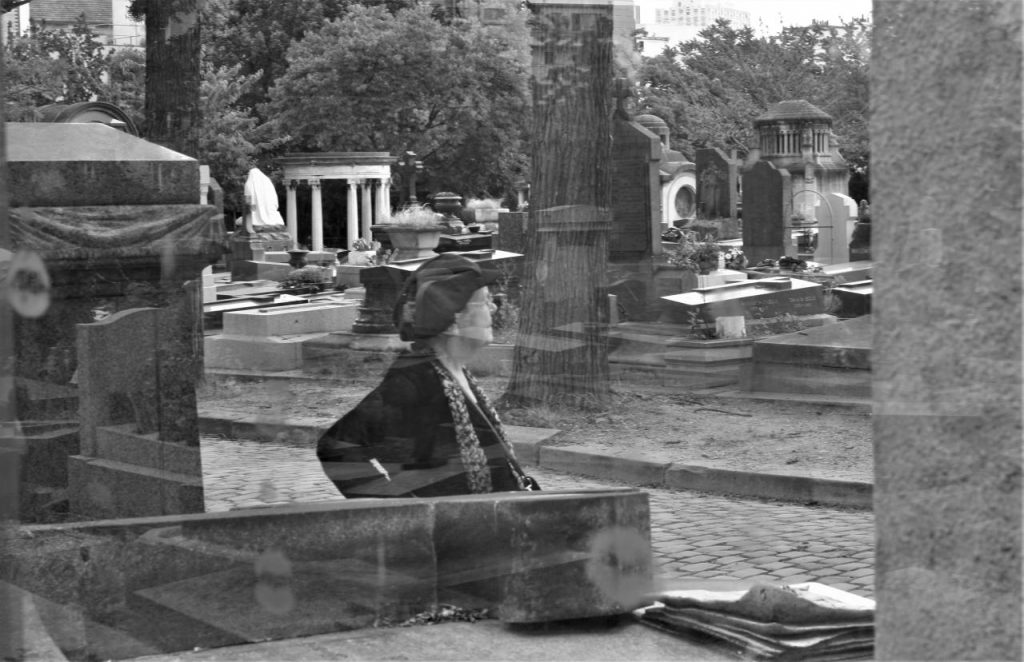
One event this week brought a particularly intense mix of feelings. This was learning of the passing of Máiréad Robinson. The email I received described Máiréad perfectly: ‘a powerful intellect who exuded kindness at every step’. There’s no doubt that she and her husband (the cartographer Tim Robinson) were one of the great cultural power couples of our age and also exceptionally generous with their time and knowledge. The body of ideas they produced, since arriving on the Aran Islands with just a suitcase in the 1970s, might amount to a richer appreciation of a place than exists for anywhere else in Ireland or Britain – as rich at least as even Nan Shepherd or George Mackay Brown. The Robinsons learnt Irish together and collaborated intensively on the rediscovery of the sophisticated and beautiful forms of Irish coastal living that were just beginning to be appreciated, after a long period of dismissal and neglect, in the 1970s and ’80s. These were expressed through annotated maps and books of extraordinarily poetic prose.
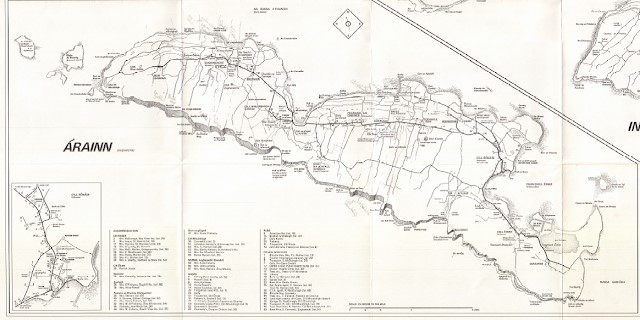
You can read more about this work in an excellent interview conducted by Pippa Marland on the Land Lines website entitled, with a typically Robinsonesque turn of phrase, ‘Adequacy is for Archangels’.
I first met Máiréad and Tim when kayaking down the west coast of Ireland in 2017. I’d recently read some paragraphs in Tim’s writing in which he praised Connemara hospitality, so I felt emboldened to drop in. When I rang, the night before arriving, it was Máiréad who answered and embraced the idea of a visitor, however damp and unwashed. She made sure I didn’t want to arrive before 10am (because, she said, they were looking forward to an indulgently slow start) and told me the timing was ideal because they’d just been given more eggs than they could possibly eat themselves.
I slept, the night before I met the Robinsons, on the bleak low peninsula of Slyne Head in heavy rain. Here’s looking back the morning after:
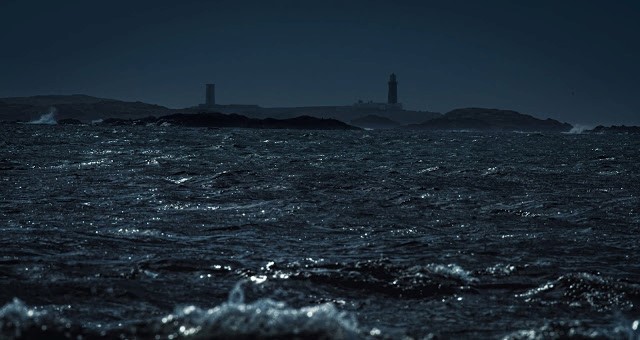
So when I arrived at their door on the pier in the tiny village of Roundstone I was even less presentable than usual. This is a house from whose windows every coming-and-going of small boats in the bay can be observed…
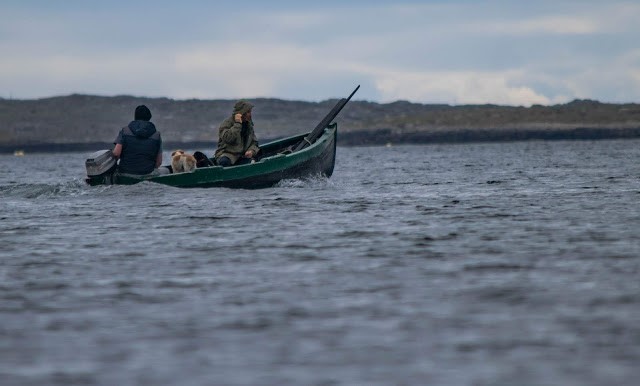
…with a garden where black guillemots perch on the high, windbreak walls, and gulls drop crabs in the flowerbeds:
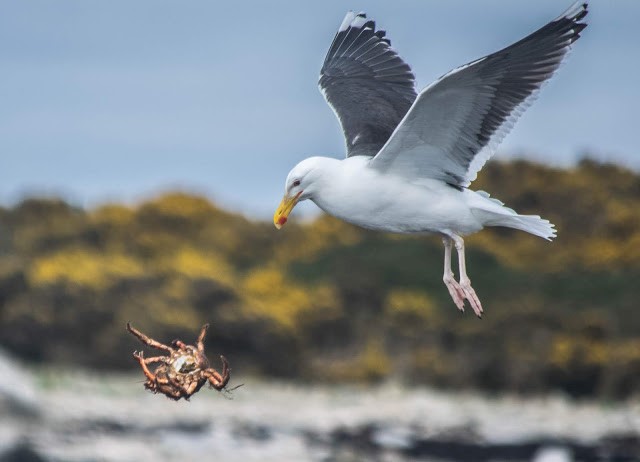
The warmth of the welcome was glorious. I’d expected to stay for about an hour, have a short chat and, if I was lucky, a lunch. But we went visiting – dropping in both on favourite people and favourite coastal places – and it was nine hours later by the time I set off again. It was, no doubt, one of the happiest, most story-filled, days of the journey: a reminder that meeting your heroes doesn’t always fall short of even the most exaggerated expectations. I wish I’d asked to take their photo that day.
A few weeks ago I visited Máiréad and Tim in the home they’d moved to in London, and once again found myself immersed in a world of fabulous stories and a generosity that, even in West Hampstead, felt embedded in coastal tradition (where culture was shaped by the principle that everyone coming from the water must be warmly welcomed, because sending someone back to sea could be their undoing). We talked about tiny details of the construction of particular boats, and about individual Connemara singers and how their geographical origins shaped the inflections of their songs: the living water ways of Carna, Inishnee and Lettermullen. The same comment, whoever made it, would draw a small, wry smile from Tim and a glorious big guffaw from Máiréad – perfectly expressive of the ways in which she was the outward-looking, gregarious element in their collaborative balance.
Then, two weeks ago, I was asked to give the opening talk at a morning devoted to the significance of the Robinsons’ work at the Clifden Arts Festival in September. I’d looked forward to hearing the witty and wise voice of Máiréad at the other end of a phone while piecing together the things I’d say. The sad thing about the timing of Máiréad’s passing is that her legacy, amid so many current crises, might not immediately get the recognition and celebration it deserves. I hope some ways can be found – now or when the virus threat subsides – to honour her influence on Irish and UK culture. For now, I’m going to ask permission to call my second-year students’ essay competition ‘The Máiréad Robinson Prize’. And my thoughts will very much be with Tim.
David Gange
David Gange is Senior Lecturer in History at the University of Birmingham and is currently writing a cultural history of small boats in the North Atlantic entitled Afloat. He is author of The Frayed Atlantic Edge (Harper Collins, 2019) and Dialogues with the Dead: Egyptology in British Culture and Religion (Oxford University Press, 2013).

